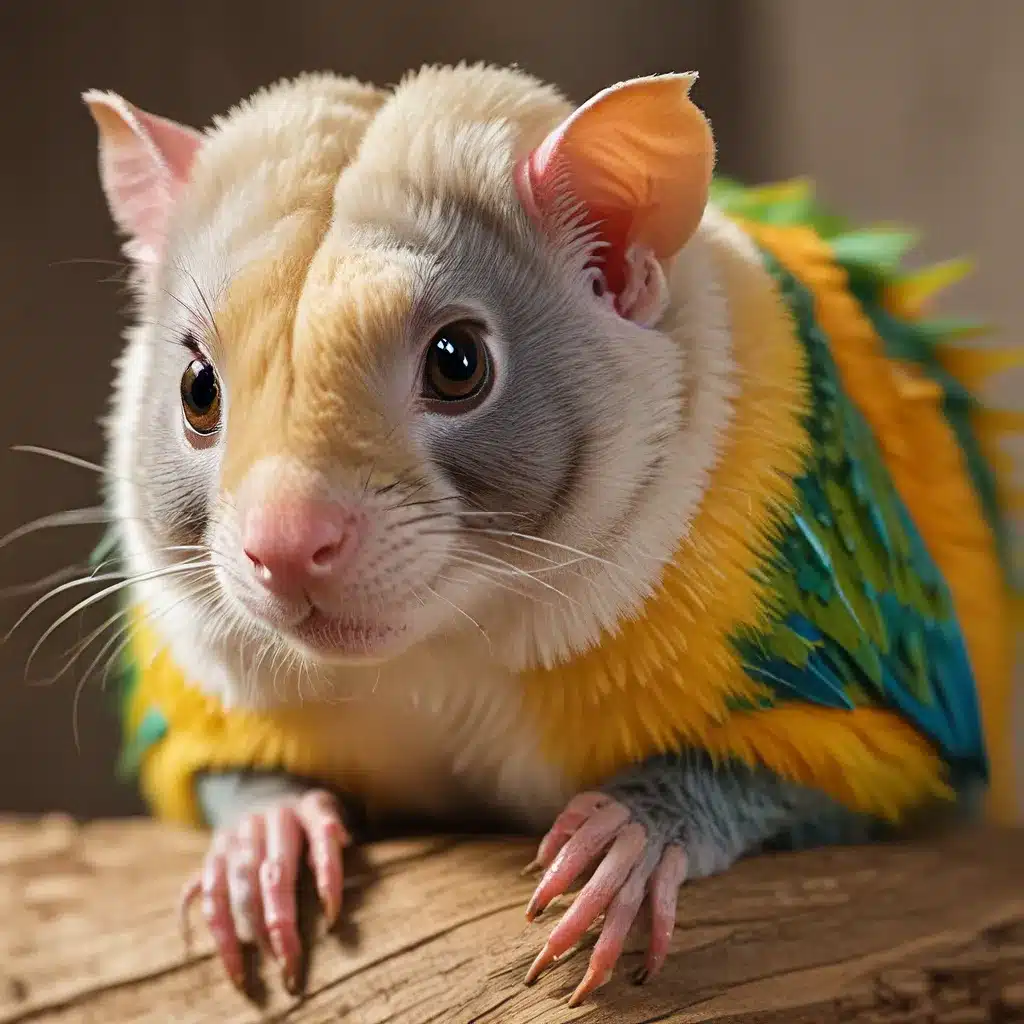
The Allure and Alliances of Exotic Pets
As an exotic pet enthusiast, I’ve always been fascinated by the intricate dance between the legal landscape and the world of unique, captivating creatures. From the moment I laid eyes on my first fennec fox, I knew I was hooked. These pint-sized desert dwellers, with their oversized ears and boundless energy, have captivated the hearts of many. But alas, the path to responsible exotic pet ownership is not always a straight and narrow one.
In Virginia alone, there are roughly 200 permitted fennec fox owners, a testament to the growing allure of these exotic animals. But as the popularity of these unique pets surges, so too does the need for understanding the legal landscape that governs their ownership.
Navigating the Legal Maze
Imagine, if you will, a labyrinth of regulations and red tape, where one misstep could land you in a world of trouble. That’s the reality faced by many exotic pet enthusiasts. But fear not, my fellow adventurers, for I’ve donned my legal explorer’s hat and ventured deep into the heart of this convoluted corridor.
The human fascination with the wild and exotic has long extended to the realm of pets, where the allure of keeping these magnificent creatures can be both captivating and controversial. As we delve into the complex ethics surrounding this practice, we unravel the intricate web of animal welfare that binds the well-being of these creatures to our choices.
Regulations and Responsibilities: The Key to Responsible Ownership
In the case of Virginia, the legal status of exotic pets like fennec foxes is a prime example of the delicate balance between individual desire and collective responsibility. According to the Virginia Department of Game and Inland Fisheries, these captivating creatures are indeed legal to own as pets, but with a crucial caveat: prospective owners must obtain a permit from the department.
This permit serves as a gateway to responsible ownership, ensuring that the individual has met the necessary criteria to provide a safe and nurturing environment for their exotic companion. It’s a testament to the state’s commitment to protecting both the well-being of the animals and the safety of the community at large.
The Importance of Permits and Compliance
Obtaining the requisite permit is no mere formality; it’s a crucial step in the journey of exotic pet ownership. By fulfilling the criteria set forth by the Virginia Department of Game and Inland Fisheries, potential fennec fox owners demonstrate their dedication to the well-being of their furry friends and their willingness to uphold the law.
Failure to comply with these regulations can have dire consequences. Imagine a scenario where an exotic pet owner, blissfully unaware of the legal requirements, finds themselves facing hefty fines or even the heartbreaking possibility of having their beloved companion confiscated. It’s a sobering thought, but one that serves as a stark reminder of the importance of understanding and adhering to the legal landscape.
Success Stories and the Power of Responsible Ownership
But the tale of exotic pet ownership in Virginia is not all doom and gloom. One notable case highlighted a fennec fox owner who was recognized for their exemplary care and responsible ownership of their pet. This case serves as a testament to the power of responsible exotic pet ownership, where the well-being of the animal and the community are harmoniously balanced.
When exotic pet owners embrace their role as caretakers and ambassadors, they not only ensure the happiness and health of their furry companions but also contribute to the broader understanding and acceptance of these unique creatures. By setting a positive example, they pave the way for a future where exotic pet ownership is not just a privilege, but a responsibility embraced by the community as a whole.
The Liability Landscape: Protecting Pets and People
As with any aspect of pet ownership, the legal landscape surrounding exotic animals is a complex tapestry woven with both rights and responsibilities. Pet owner liability laws vary from state to state, but they generally hold pet owners accountable for the actions of their animals, including injuries caused to people or other animals, as well as property damage.
In the case of exotic pets, the stakes are even higher. These animals, with their unique temperaments and specialized needs, require extra vigilance and care from their owners. Failure to provide proper training, supervision, or containment could result in disastrous consequences, both for the pet and those around them.
The Importance of Responsible Pet Ownership
As an exotic pet enthusiast, I’ve come to understand that responsible ownership is not just a lofty ideal, but a fundamental obligation. It’s about ensuring the well-being of our furry (or scaly, or feathered) companions, while also safeguarding the safety and well-being of our communities.
From proper training and socialization to secure containment and open communication with neighbors, the responsibilities of exotic pet ownership are numerous and complex. But by embracing these challenges, we can forge a future where the allure of the wild and the joys of companionship coexist in perfect harmony.
Conclusion: Navigating the Path to Responsible Exotic Pet Ownership
The journey of exotic pet ownership is not for the faint of heart, but for those willing to embrace the legal and ethical complexities, the rewards are truly unparalleled. By navigating the labyrinth of regulations, obtaining the necessary permits, and upholding the highest standards of responsible care, we can cultivate a world where the unique and the captivating are celebrated, not just in the wild, but in our very own homes.
So, my fellow adventurers, let us embark on this odyssey together, exploring the wonders of exotic pets while honoring the laws and ethics that protect them. With diligence, compassion, and a touch of wonder, we can redefine the landscape of exotic pet ownership, one permit and one happy, healthy animal at a time.

